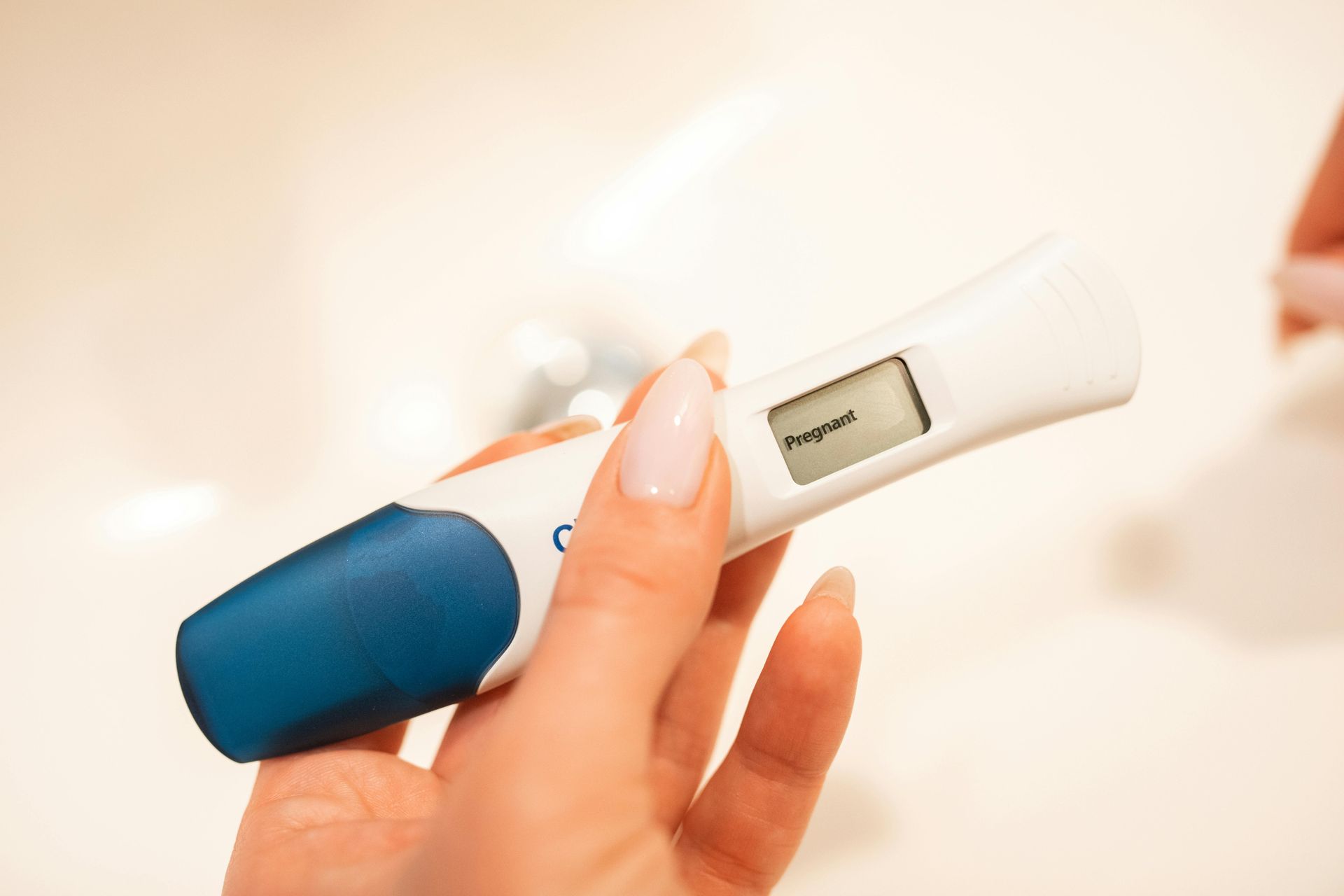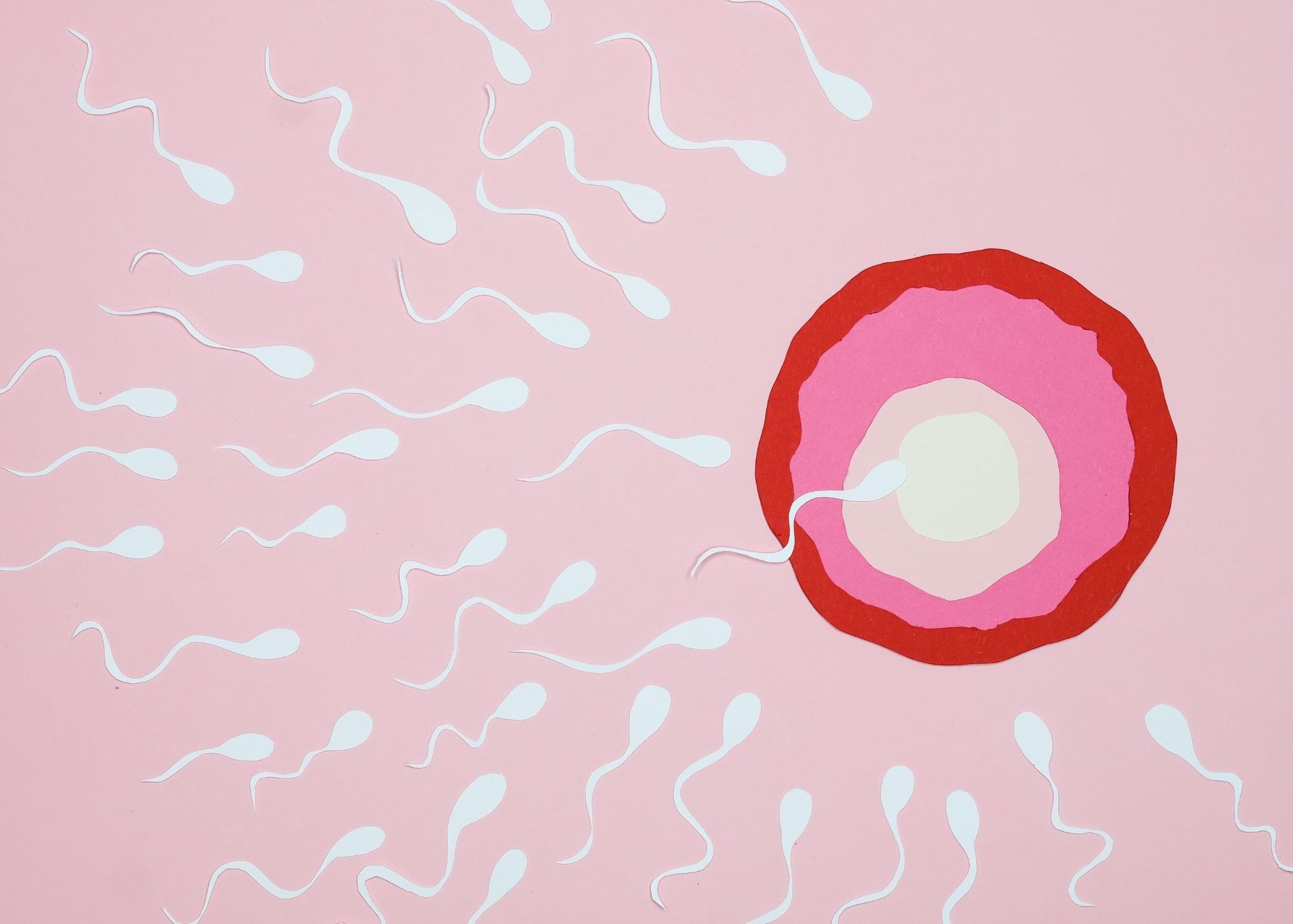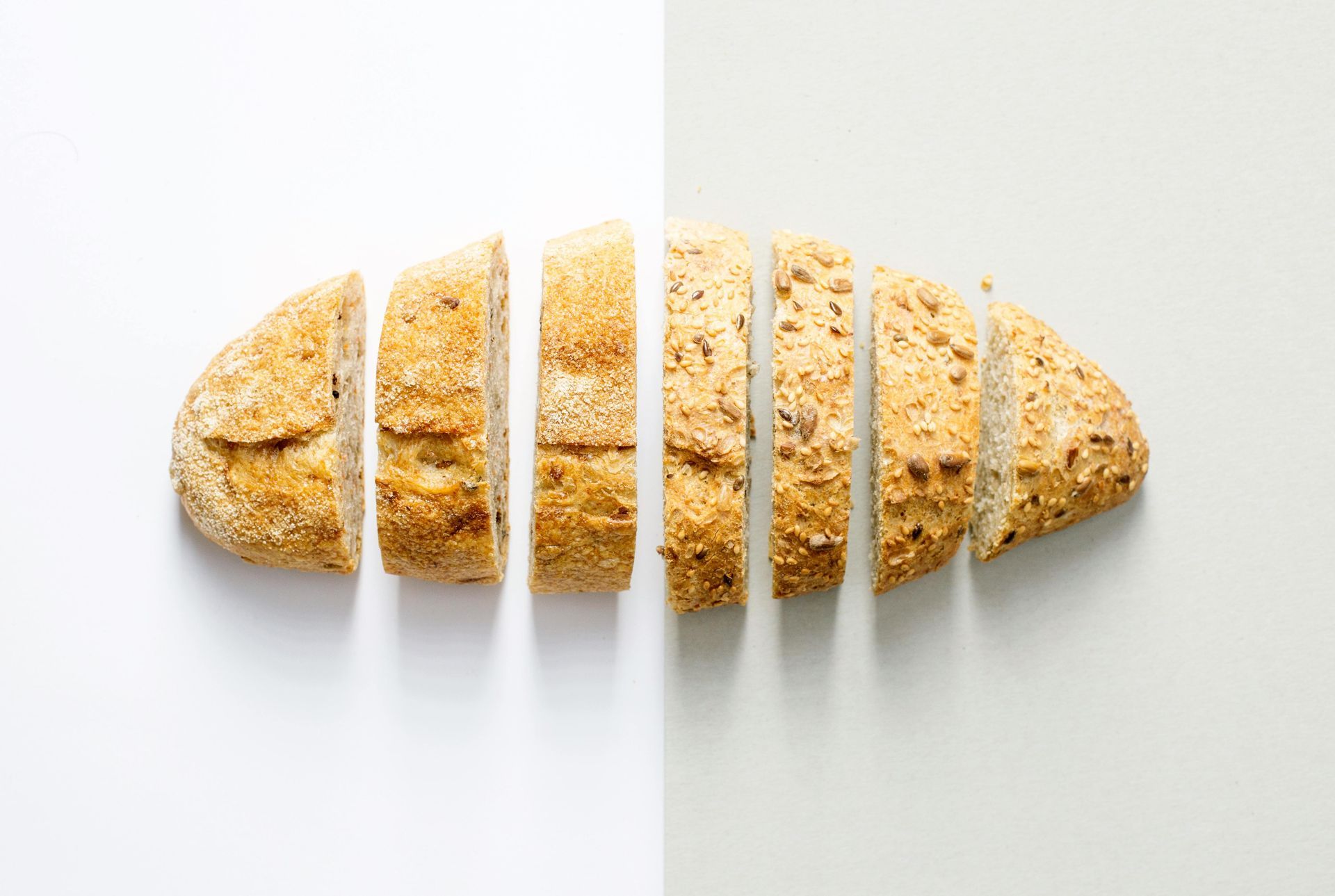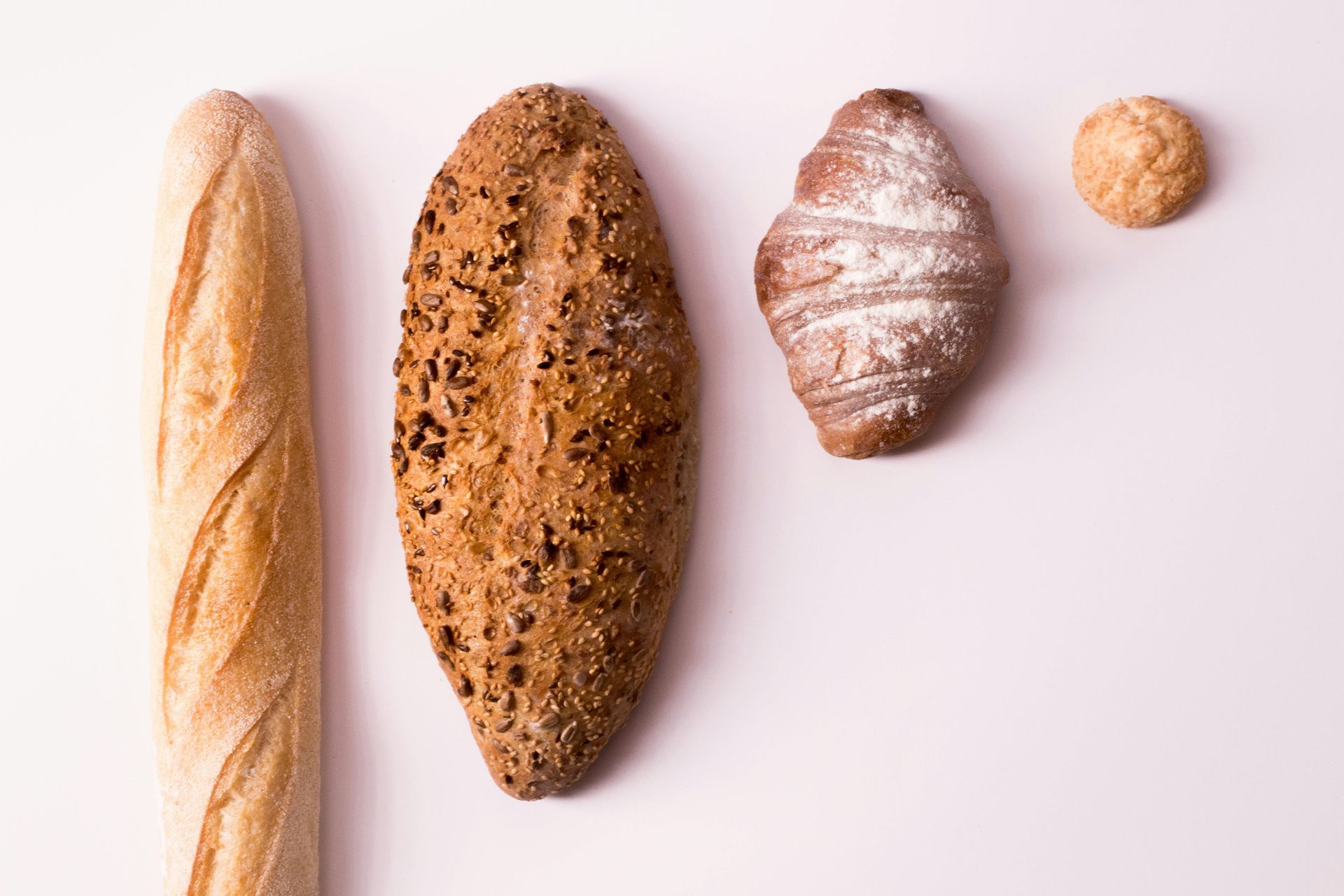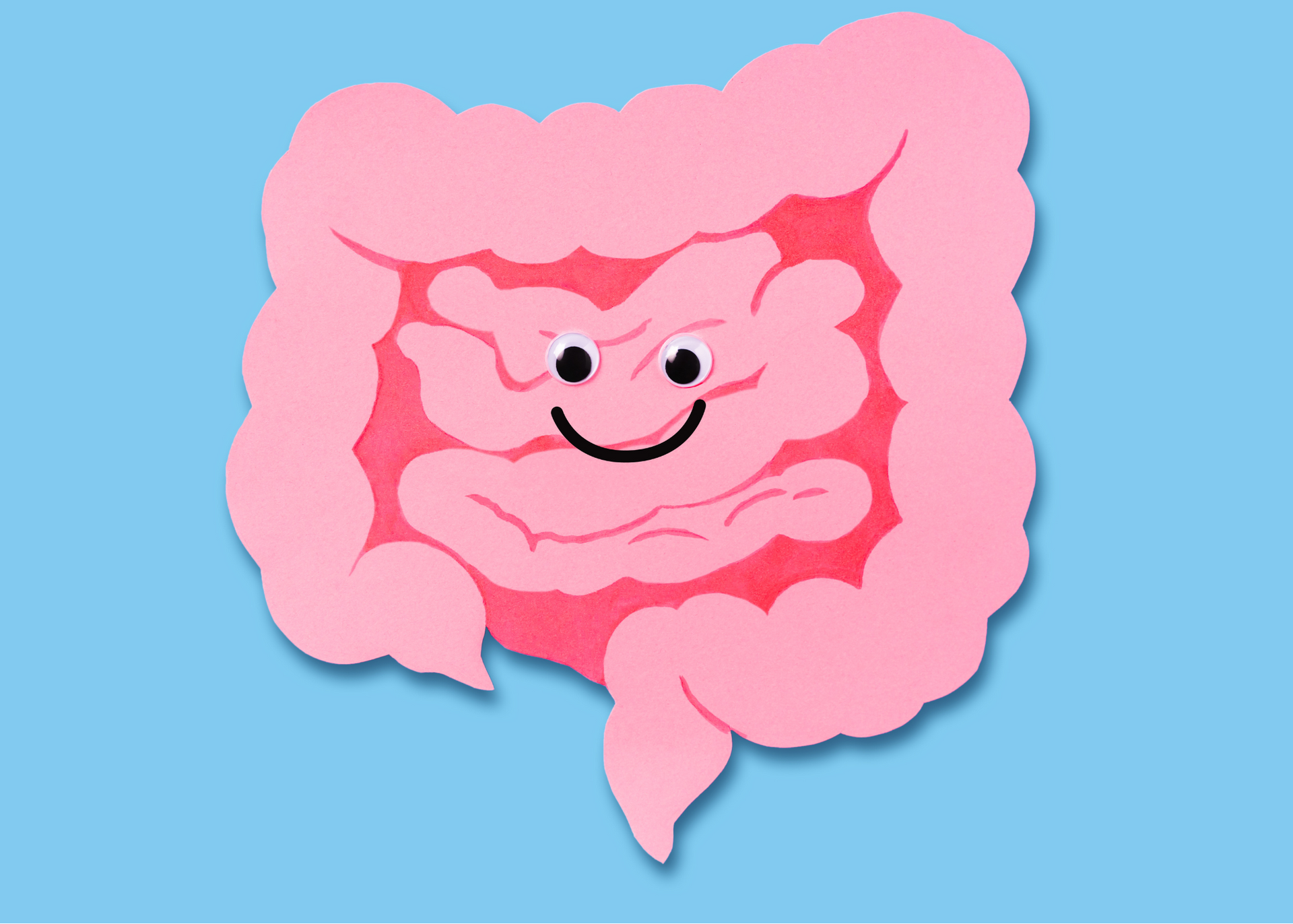Signs of adrenal burnout, and the green drink that can help
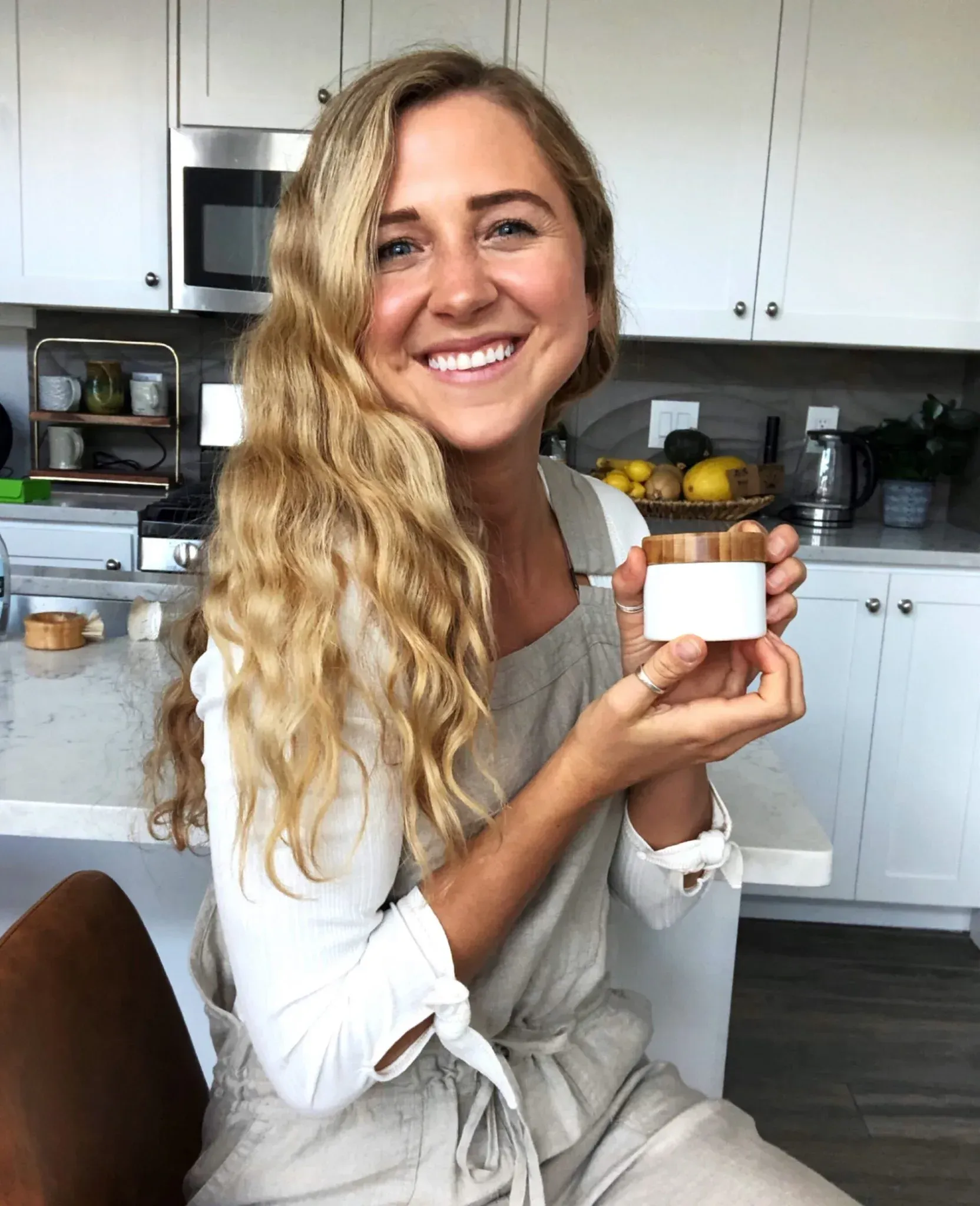
The last two years have been a lot to take in. We’re more stressed and more anxious than ever, and many of us grab for a cup of coffee (or multiple) to keep up with the demands of life.
But is coffee actually helping you? Or is it actually making your energy worse?
In this article I share signs and symptoms of “adrenal burnout”, why you may want to take a break from coffee, and why matcha could be just the boost you’re searching for.
How do I know if I have adrenal burnout?
Your adrenals are two glands that sit on top of your kidneys that produce several hormones, including a hormone called cortisol.
Even though cortisol is a “stress hormone”, producing cortisol isn’t a bad thing. Surges of cortisol are totally normal, and actually healthy!
First thing in the morning your body should produce a big surge of cortisol to wake you up and help you feel ready to take on the day.
Cortisol is also helpful if you are in a dangerous situation. Your body pumps out cortisol to prime you to fight or flee – extra blood flows to your muscles, your pupils dilate, your heart rate and blood pressure go up, and you produce adrenaline to get you feeling amped up and energized.
But cortisol also increases when you’re stressed, and if you’re stressed too often this can lead to big issues.
Our adrenals can only take so much. If you are stressed too often or for too long your adrenals can pump out cortisol in the wrong amounts at the wrong time.
If you are dealing with long-term stress, the adrenals may start to overproduce cortisol. Your body will attempt to come to the rescue and help you meet the challenge you’re facing!
Signs of overproducing cortisol:
- Insomnia
- Waking up in the middle of the night, often between 3-5 AM
- Anxiety
- PMS
- Irregular menstrual cycles
- Lack of ovulation
- Acne
- Weight gain
- Male patterned hair loss
- Bloating and gas
- Constipation
- Compromised immune system
- Joint pain
- Impaired exercise recovery
- Cravings for salt and sugar
- PCOS
- Low thyroid function
- Autoimmune disease
- Blood sugar imbalance
If the stress continues the adrenals may shift gears and slow down cortisol production, making you feel sluggish and unmotivated. This is often referred to as “adrenal burnout”, “adrenal exhaustion”, or “adrenal fatigue”.
Signs of underproducing cortisol:
- Difficulty getting out of bed in the morning
- Extreme fatigue, especially in the afternoon around 3-4 PM
- Low motivation
- Brain fog
- Depression
- Disrupted sleep
- Muscle loss
- Impaired exercise recovery
- Weight gain, especially in the belly area
- Compromised immune system
- Joint pain
- Low blood sugar
- Low blood pressure, which can result in dizziness when standing
- Cravings for salt and sugar
- Increased urination
- Water retention i.e. feeling “puffy”
- Heart palpitations
Symptoms of high and low cortisol can sometimes overlap, and adrenal testing is available if you want to know exactly what your cortisol is doing throughout the day. I recommend a five-point cortisol saliva test that includes a CAR (cortisol awakening response) analysis.
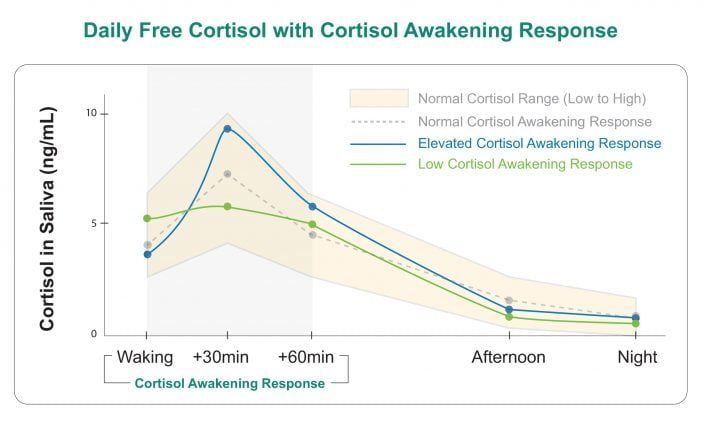
example of DUTCH five-point cortisol saliva testing with CAR
Why coffee makes adrenal dysfunction worse
Whether you have high or low cortisol production, too much caffeine can make any form of adrenal dysfunction worse!
Research shows consuming too much caffeine can increase cortisol production in a similar way as acute stress does. Coffee contains a large amount of caffeine, and we often drink more coffee during stressful times. We are literally adding stress to our already stressed out bodies!
The half-life of caffeine is anywhere from about 2 to 9 hours depending on the person, so a mid-afternoon cup can make it really challenging to fall asleep and get high-quality sleep when we do finally doze off. Less high-quality sleep means we drag out of bed in the morning, and we grab for even more coffee throughout the day.
It’s easy to see how this “helpful” drink may not be so helpful after all.
How is matcha different?
Matcha is a special type of green tea that has been around for nearly a thousand years. It dates back to the Tang Dynasty in China, and only recently have we rediscovered its health benefits here in the US.
If your adrenals are dysfunctional, the goal is to decrease your body’s perceived stress. Matcha can help! Matcha is not just a way to get a caffeine fix. Matcha contains caffeine, but it contains about half the amount of caffeine as coffee and it contains a calming compound called L-theanine.
The amazing power of L-theanine:
- Energy without jitters or crash
- Increases the alpha waves in the brain, the same brain waves activated during meditation
- Increases focus while simultaneously promoting relaxation
- Increases the feel-good hormone serotonin
- Can reduce PMS symptoms
- Can lower high blood pressure
- Can improve sleep (especially in those with ADHD or other hyperactive disorders)
Switching to matcha is a great way to reduce your body’s perceived stress and give you the balanced, calm energy you need to handle everyday life and the additional stressors of everything going on in the world today.
Why Encha matcha?
I have tried A LOT of matcha brands, and the quality makes a HUGE difference. Cheap, low-quality matcha tastes like dirty grass, and lower quality means less health benefits.
My favorite brand of matcha is Encha – I have been drinking Encha matcha for three years now, and I have yet to find another brand that comes even close!
What I love about Encha:
- Its smooth taste with hints of sweetness
- Its bright “spring green” color – proof of its high quality!
- 100% organic
- Produced in Japan, which means lower lead levels (China continued to use leaded gasoline until 2000 and many farms are located close to highways)
- Individual packets are available, which are great for travel
- approved by third-party testing via consumer lab
You can use code “ TAYLOR10” for 10% off your first order !
My favorite Encha product is their ceremonial-grade matcha , but their latte-grade and culinary-grade matcha options are great for baked goods, smoothies, and other matcha-filled recipes (Encha has lots of great recipes on their website).
First time making matcha?
Here is how to make the perfect matcha every time!
The goods:
– ½ – 1 tsp
Encha matcha
– 1 cup water
– ¼ cup
unsweet dairy-free milk of choice (my favorites lately are Califia Farms unsweet almond milk and Simply unsweet almond milk, and sometimes I also add a splash of Lairds superfood vanilla creamer)
My easy hot matcha how-to:
- Blend ½ – 1 tsp Encha matcha with about an inch of hot water using a milk frother for about 45-60 seconds until smooth.
- Add 1 additional cup hot water + milk/creamer of choice
My easy iced matcha how-to:
- Blend ½ – 1 tsp Encha matcha with about an inch of hot water using a milk frother for about 45-60 seconds until smooth.
- Add 1 cup room temperature or cold water and milk/creamer of choice
- Add two handfuls of ice cubes
Be sure to be sure to follow me on Instagram
@plateandcanvas for more recipes and nutrition tips!
Continue Reading
